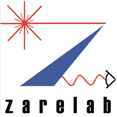Remarks on receiving the 1998 Centennial Medal, Harvard University
Remarks on receiving the 1998 Centennial Medal
Richard N. Zare
Marguerite Blake Wilbur Professor in Natural Science
Department of Chemistry
Stanford University
Stanford, CA 94305-5080
That I should receive the Harvard Graduate School of Arts and Sciences Centennial Medal — well, it never should have happened! We know that the Harvard GSAS is cherished throughout the world for celebrating the pursuit of knowledge, the joy of learning, and the life of the mind. Moreover, the GSAS has produced so many outstanding and deserving Ph. D. graduates that the selection of the Centennial Medal award winner cannot help but be subjective in part. What I am referring to is this; I should never have received my Ph. D. from Harvard. Indeed, that was definitely not my plan.
Some 41 years ago, I had the good fortune of entering Harvard College with a Harvard National Scholarship. I enjoyed immensely my four years there as an undergraduate majoring in chemistry and physics. Toward the middle of senior year, I remember going to various faculty members of the Harvard Chemistry Department and asking them for advice about graduate schools. It was understood that no graduate school measured up to Harvard, but I persisted in expressing a desire to explore new vistas. I decided to ask as many faculty as possible. The names of various researchers were bandied about. To my surprise, a clear pattern emerged. Again and again, I was told to contact a young man by the name of Dudley Herschbach. He had been a Harvard Junior Fellow but had recently left to set up a daring experiment at the University of California, Berkeley, to observe chemical reactions in the gas phase, collision by collision. This feat was to be accomplished by crossing two molecular beams and detecting the scattered reaction products. Although some deep skepticism was expressed whether there would be sufficient sensitivity with this technique to ever see anything, the challenge and the adventure were irresistible. So, in 1961, I joined a tiny but fierce band of believers at UC Berkeley who pursued such experiments with missionary zeal.
How was I to know that my process of polling the Harvard faculty would mean that I had chosen as my mentor for graduate studies the person whom they would invite back to Harvard as a Full Professor in less than two years! I returned with Herschbach to Harvard, and in 1964 I received my Ph. D. in chemical physics. I cannot express sufficiently my gratitude to my mentor and to Harvard for the role they have both played in shaping my life. Thank you again for this great, and unexpected, honor.
